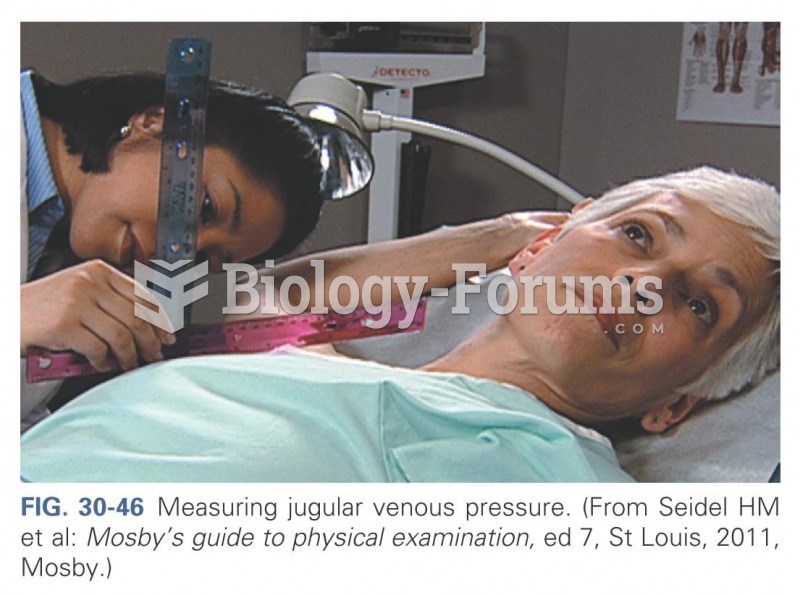Answer to Question 1
B
Feedback
A Incorrect. Altering modifiable risk factors is a sub-goal to preventing cardi-ovascular disease.
B Correct. The nurse assists the adult in maintaining health and wellness by helping him prevent cardiovascular disease because, as an African American male adult, he has a high risk of stroke, hypertension, and diabetes mellitus. Furthermore, he is more likely to die of a stroke or heart attack than other people in the United States. To help him prevent cardiovascular disease, the nurse assists him with lifestyle modifications. Specific recommendations the nurse can make include getting regular exercise, learning the warning signs of heart attack and stroke, maintaining a normal weight, controlling the blood pressure, eating a well-balanced, low-fat, no-added-salt diet and avoiding smoking.
C Incorrect. Learning the early warning signs of disease is a sub-goal of preventing cardiovascular disease.
D Incorrect. Although he has no clinical indicators of hyperglycemia, he is at risk to develop diabetes mellitus. This is an important sub-goal of preventing cardi-ovascular disease for an African American male.
Answer to Question 2
A, C, D
Carotid stenosis refers to the occlusion of the carotid artery from atherosclerotic plaque and can be a result of chronic hypertension. Older adults with carotid stenosis are at high risk for strokes because of the risk of a thromboembolic event from the plaque. Renal dysfunction can occur as a result of chronic hypertension; the intimal lining of the renal arteries is damaged over time, which leads to renal artery stenosis and decreased renal perfusion. Coronary artery disease is a common result of chronic hypertension.
Diabetes mellitus (DM) is not a result of end-organ damage from chronic hypertension; however, when it accompanies hypertension, DM accelerates the process of end-organ damage and greatly increases the risk of cardiovascular disease. Isolated systolic hypertension is a com-mon consequence of aging but not a result of end-organ damage. Genetic factors determine fa-milial hypercholesterolemi a and cannot be caused by end-organ damage.







